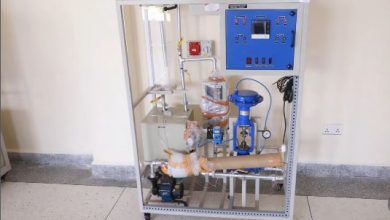TCAA strengthens Tanzania’s position as safe destination for airlines

DAR ES SALAAM: TANZANIA is making impressive strides toward developing a vibrant and robust aviation sector, positioning the country as a preferred destination for investment, trade and tourism.
In the course, the Tanzania Civil Aviation Authority (TCAA) has implemented various initiatives to ensure safety and uphold international aviation standards, which have enhanced the country’s reputation as a preferred destination for airlines.
These efforts align with the Third National Five-Year Development Plan (FYDP III) 2021/22 – 2025/26, which prioritises the development and maintenance of airports as a means to boost transport infrastructure and competitiveness.
The government, as outlined in the CCM Election Manifesto of 2020-2025, is committed to upgrading strategic infrastructure to create an enabling environment for citizens to thrive in their daily activities.
Presenting the progress of the regulatory body in fostering development of aviation during the Tanzania Editors Forum Annual Meeting in Dar es Salaam over the weekend, TCAA’s Managing Director, Mr Salim Msangi noted that the country has already signed Bilateral Air Services Agreements (BASA) with 85 countries out of which 17 have their airlines offering services
In total, the country is served by 24 airlines, with 214 registered aircrafts actively operating.
Mr Msangi noted that one of the key achievements in boosting the aviation sector is the significant improvement in airspace management.
In 2019, Tanzania’s airspace had only 25 per cent radar coverage, but today, it boasts of 100 per cent radar coverage, thanks to the installation of four new radars at Julius Nyerere International Airport (JNIA), Mwanza, Kilimanjaro and Songwe airports. This expansion costs approximately 67bn/-.
“With full radar coverage, we have significantly improved the safety and efficiency of air travel in Tanzania, contributing to a stable aviation environment free from serious security incidents,” Mr Msangi said.
He added that TCAA will continue to enhance its oversight to meet the International Civil Aviation Organisation’s (ICAO) standards and ensure safety and security.
In May 2023, Tanzania ranked 4th in Africa with an impressive 86.97 per cent score in the ICAO aviation security audit, further reinforcing the country’s standing as a safe and reliable destination for international airlines.
ALSO READ: TCAA seeks govt support to enhance aviation training fund
Regarding capacity building, Mr Msangi underscored the TCAA’s collaboration with stakeholders to train the next generation of aviation professionals.
To date, 11 maintenance engineering students have been sponsored to attend the Ethiopia Training Academy, with four being females and seven males benefitting from this initiative. He said eight pilot cadets are nearing the completion of their training.
Despite these gains, Tanzania still faces a shortage of pilots, with only 603 currently in the country—344 local and 259 foreign. This falls short of the 755 pilots required to meet the sector’s growing demand.
To address this gap, TCAA is building a modern Civil Aviation Training Centre (CATC) in a project worth approximately 78bn/-. The facility will include classrooms, administrative blocks, academic spaces, hostels and training facilities to support the next generation of pilots and aviation professionals.
Economist Dr Isaac Safari, from the Saint Augustine University of Tanzania (SAUT), praised the efforts to improve airspace safety, noting that it would continue to attract more airlines to Tanzania and inspire investor confidence in the country’s aviation sector.
However, he emphasised the need for economic diversification to further accelerate the movement of people and goods via air transport.
Dr Safari also commended President Samia Suluhu Hassan for her focus on economic diplomacy and investment promotion, which have spurred growth across various sectors, including trade, tourism, agriculture and aviation.
Aviation sector analyst Mr Renatus Kyakalaba echoed this sentiment, stating that government investments in aviation infrastructure would contribute significantly to the country’s economic growth.
“These investments are catalysts for positive growth in the aviation industry,” he said. He also highlighted the importance of a strong economy as a foundation for a thriving aviation sector.
Statistics show that the aviation sector’s contribution to Tanzania’s GDP has grown significantly, rising to 2.5 per cent in 2023, up from just 0.8 per cent in 2018. Employment in the sector has also surged, with a 47 per cent increase in aviation jobs since the pandemic, now employing around 10,000 people.
Mr Kyakalaba stressed the need for a broader, inclusive economic growth strategy that incorporates sectors like mining, trade and tourism.
By attracting more Foreign Direct Investment (FDI), Tanzania can generate more capital, create jobs, foster international interactions and ultimately strengthen its aviation sector.




